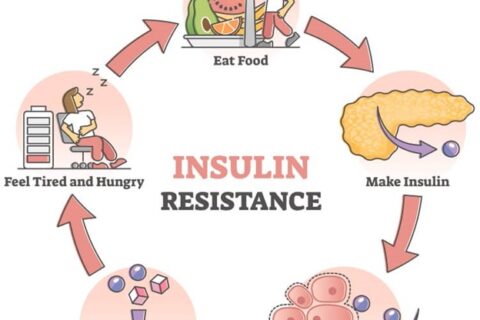9 Tips for Managing Blood Sugar
Our bodies transport sugar from food through the bloodstream to individual cells. Through a complicated process involving the hormone, insulin, the body converts sugar into energy. Individuals with diabetes, however, cannot regulate and convert sugar (glucose) into energy in a normal manner. As a result, individuals with diabetes must take other measures to manage their blood sugar levels to prevent diabetes side effects.
If you have been diagnosed with either type one or type two diabetes, then your doctor has probably talked with you about taking steps to manage your blood glucose (blood sugar) levels. The following simple lifestyle adjustments can help you better manage, regulate and control your blood sugar.
1. Do Not Skip Meals
After not eating for hours, the body signals the liver to release glucose into the bloodstream. If you already have high levels, your liver still releases sugar. Eating regular meals prevents the release of sugar into your bloodstream and also prevents levels from becoming too low if you are on medications to regulate blood sugar.
2. Exercise
Getting plenty of exercise helps you lose weight and increases insulin sensitivity, improving your body’s ability to convert sugar into energy. In addition, exercising muscles make better use of sugar available in the bloodstream.
3. Beware of Sneaky Sugars
Everyone knows frosting is loaded with sugar and bagel are dense with simple carbohydrates, but often lots of sugar hides in foods where we don’t expect. Condiments (ketchup and salad dressings) notoriously contain added sugar. Even supposedly healthy foods, like yogurt, can contain lots of added sugar in addition to the fruit. Before choosing a food, read the nutrition label, looking for added sugar or other names for sugar (sucrose, high-fructose corn syrup, dextrose, maltose, etc.).
4. Check the Glycemic Index
The glycemic index ranks foods with a numerical value (55 or lower) based on how they affect blood sugar. A food which falls low on the index has little effect compared to those which rank high on the index.
5. Sleep
Not getting enough sleep or high-quality sleep will make it more difficult for you to control your blood sugar. Not only does sleep deprivation decrease insulin sensitivity, it also triggers the production of hormones which increase appetite, making you crave carbohydrates and increasing feelings of hunger.
6. Stay Hydrated
When your blood contains too much sugar, your kidneys help the body flush out the excess through urine. Drinking plenty of water will help take some of the pressure off of your kidneys, ensuring they have enough fluid to slough off the extra sugar. When hydrating your body, choose water or other non-caloric fluids like green tea over sugary drinks such as soda, juice or other sweetened beverages, which can make blood glucose levels skyrocket.
7. Think Twice Before Ordering a Drink
Alcohol contains sugar and can lead to an immediate increase in blood sugar followed by a steep drop later. Limit your alcohol intake. Eating a food high in protein before you imbibe will help curb the alcohol’s effect on your blood glucose levels.
8. Manage Stress
When under stress, the body releases cortisol and glucagon, hormones which directly cause blood sugar levels to rise. Find ways to manage stress and reduce anxiety, like practicing breathing exercises, meditating, taking walks or relaxing in the bathtub.
9. Monitor Your Numbers
You won’t know if you are successfully managing your blood sugar, if you fail to check your blood glucose levels. When diabetes is under control, a person’s blood glucose levels should be as close to normal as possible. According to the American Diabetes Association, “Generally, this means levels between 70 and 130 mg/dl before meals, and less than 180 two hours after starting a meal, with a glycated hemoglobin (A1C) level less than 7 percent.” Healthy or acceptable blood sugar levels, however, can vary from person to person; it’s always a good idea to ask your doctor about what blood sugar numbers are reasonable for you.
Although opting to make healthy lifestyle choices is generally a good decision, you should always talk with your doctor or healthcare provider before making any changes to your diet, prescription medications or health regimen.



















































































































































